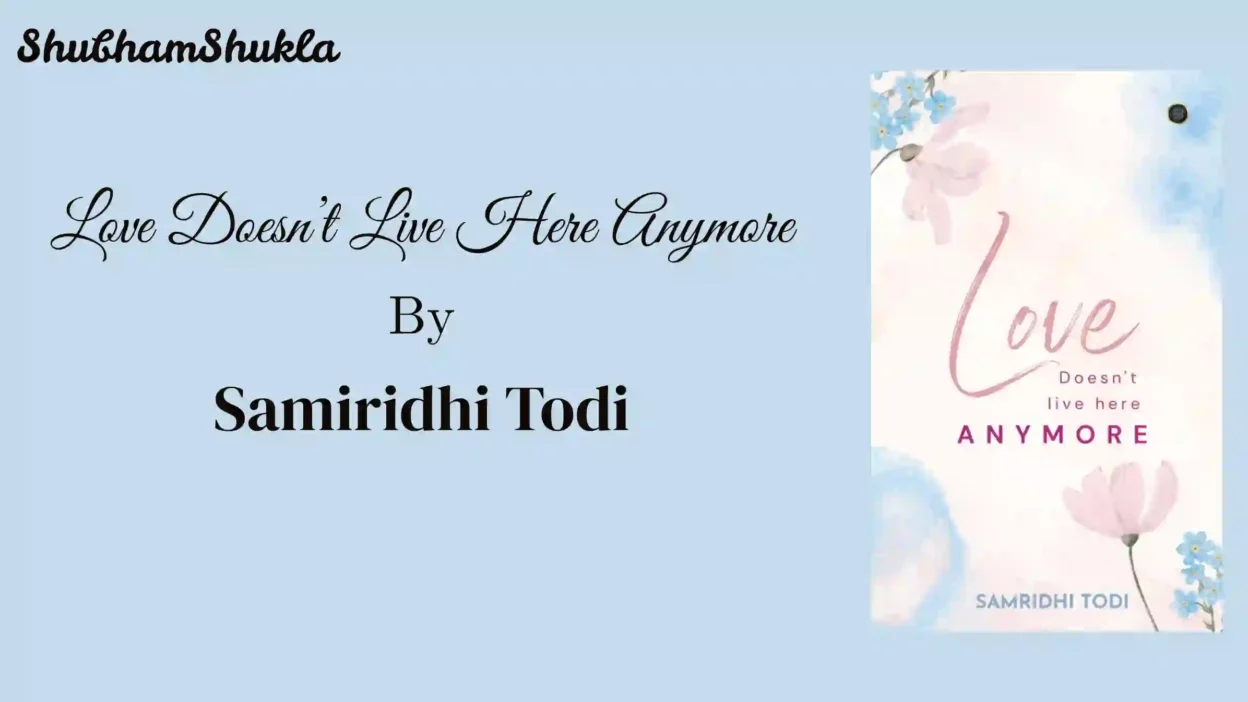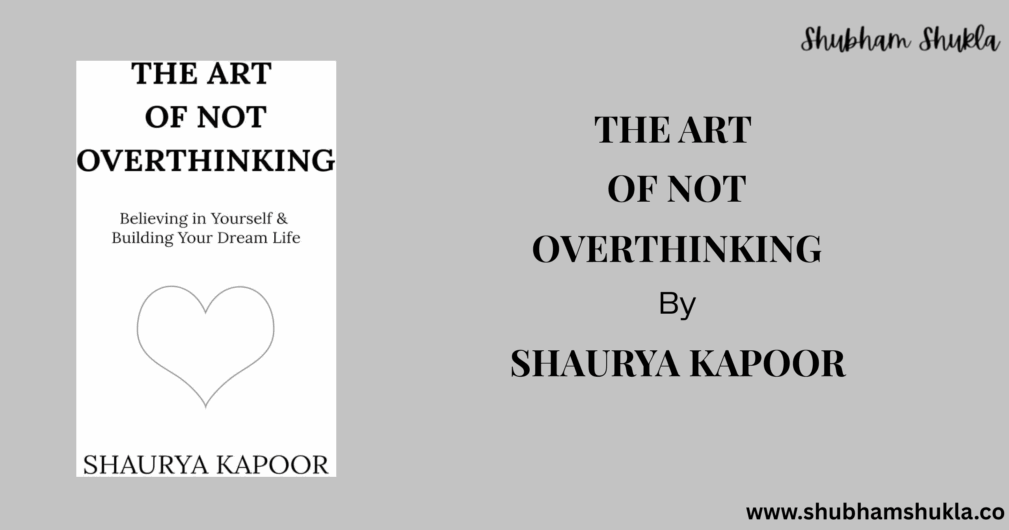Ever stumbled upon a book title that punches you in the gut a little? Love Doesn’t Live Here Anymore does just that. In 2025, when readers crave raw emotion, soul-baring storytelling, and honest reflections on the human heart does this book deliver?
Let’s break it down.
About the Author – Samridhi Todi
A Rising Star in Indian Contemporary Fiction
Samridhi Todi may not be a household name yet, but she’s fast becoming one. With her poetic prose and fearless themes, she taps into the undercurrents of modern Indian youth emotional vulnerability, social stigma, and personal rebirth.
Themes That Define Her Voice
If you’ve read her earlier works or follow her on social platforms, you know her style: deep, introspective, and unapologetically honest. She often writes about heartbreak, trauma, and identity but with an underlying hope.
Overview of the Book
Love Doesn’t Live Here Anymore
Author: Samridhi Todi
Publisher: BlueRose Publishers
Genre: Contemporary Fiction / Literary Fiction
Published: 07/Jun/2025
Pages: Approx. 152
Love Doesn’t Live Here Anymore follows the story of a mother and daughter whose fractured relationship lies at the center of the narrative.
The novel is both intimate and expansive, delving into familial bonds strained by loss, miscommunication, and personal demons.
With Kolkata as the emotional backdrop, the story weaves memories, regrets, and moments of love into a heartbreaking yet hopeful tapestry.
You may also like: Top 10 Names of Demons in the Bible
Plot Summary (Spoiler-Free)
At its core, Love Doesn’t Live Here Anymore is a meditation on grief and the longing for reconciliation.
The story revolves around Naina, a young woman who returns to her hometown of Kolkata after the sudden death of her estranged mother, Meera.
As Naina sifts through the remnants of her mother’s life her home, her memories, and her journal she begins to confront the trauma of their past, from a distant childhood to an emotionally absent adolescence.
Through alternating timelines and introspective prose, the novel reveals the slow unraveling of a mother-daughter bond and the emotional aftermath of silence and misunderstandings.
It asks a painful question many readers may relate to: how do we grieve someone we loved but never truly knew?
Key Themes Explored
1. Mother-Daughter Dynamics
The complex, often tumultuous relationship between Naina and Meera is the emotional spine of the novel. Todi’s portrayal avoids clichés, instead offering a raw and honest look at generational trauma, emotional distance, and the missed chances that define many real-world relationships.
2. Grief and Loss
The novel offers a poignant depiction of grief not just in losing someone physically but also in losing the emotional connection long before death. It explores how unresolved emotions can echo through our lives, affecting our ability to forgive and move forward.
3. Search for Identity and Belonging
Naina’s journey is also one of self-discovery. As she navigates her past, she begins to understand not just her mother but also herself. The book touches on how we often define ourselves through our parents, for better or worse.
4. Silence and Communication
A recurring motif in the novel is what’s left unsaid. Miscommunication and emotional walls are often more damaging than outright conflict. Through Todi’s characters, the story shows how silence can wound deeper than words.
You may also like: Top 10 JK Rowling Books Ranked by Readers
Writing Style and Narrative Voice
Samridhi Todi’s prose is lyrical, introspective, and emotionally layered. Her writing style leans more toward literary fiction, with rich imagery and a focus on internal character development over plot-driven momentum.
While this might not suit every reader, those who appreciate quiet, contemplative storytelling will likely find her voice deeply resonant.
The narrative structure alternates between the past and present, allowing readers to piece together the emotional puzzles of the characters. Todi masterfully uses this nonlinear storytelling to mirror the fragmented nature of memory and grief.
Standout Quotes
Here are a few standout lines from the novel that encapsulate its emotional depth:
- “Sometimes, it’s easier to mourn someone when they’re gone than it is to love them while they’re still here.”
- “We carry the weight of unsaid things longer than we carry grief.”
- “Love, once unspoken, becomes a ghost that haunts the living.”
These quotes underline the poetic strength of Todi’s writing and the heavy emotional themes threaded throughout the narrative.
You may also like: 10 Essential Types of Characters in Literature (With Examples)
Critical Reception
Upon its release, Love Doesn’t Live Here Anymore was met with critical acclaim, particularly for its sensitive handling of trauma and familial relationships.
Literary reviewers praised Todi’s mature voice and emotional insight, especially for a debut author. The novel has since been recommended by various book clubs and mental health advocates for its honest portrayal of grief and healing.
Readers who enjoyed titles like Everything I Never Told You by Celeste Ng or The God of Small Things by Arundhati Roy will likely appreciate the emotional weight and nuanced storytelling of this book.
Pros and Cons
Pros
- Deep emotional resonance and character-driven storytelling
- Beautifully written, poetic prose
- Honest exploration of grief and family dynamics
- Strong representation of urban Indian life and cultural nuances
Cons
- Slow-paced; not ideal for readers looking for action or high drama
- Emotionally heavy might not suit those seeking light-hearted reads
- May feel too introspective for fans of plot-heavy fiction
You may also like: 10 Best Fiction Books to Read in 2025 (Updated List)
Is It Worth Reading in 2025?
Absolutely Love Doesn’t Live Here Anymore remains a compelling and timely read even two years after its release. As we continue to see a rise in literary fiction centered on emotional wellness, trauma, and generational healing, this novel holds its ground firmly.
In 2025, when many readers are seeking stories that reflect their inner lives and emotional truths, this book offers a space for introspection and connection. It speaks to anyone who has ever lost someone, struggled with family, or felt the weight of things unsaid.
If you’re in the mood for a powerful, quietly heartbreaking novel that lingers long after the final page, then yes Love Doesn’t Live Here Anymore is definitely worth your time.
Final Verdict: 4.5/5
🌟 Heartfelt, raw, and poetically written, a must-read for lovers of emotional literary fiction.
Who Should Read This Book?
- Fans of emotional, character-driven novels
- Readers who appreciate Indian contemporary fiction
- Anyone interested in themes of grief, family, and self-discovery
- Book clubs looking for meaningful discussions
Frequently asked questions
Q: Is this book based on a true story?
No, but the emotional themes feel very real and are inspired by common familial experiences.
Q: Is this book appropriate for young readers?
Due to its mature themes around trauma, grief, and emotional neglect, it is more suitable for adult and mature YA readers.
Q: Does the book offer closure at the end?
Without spoiling, the book leans toward emotional resolution rather than concrete closure, mirroring real-life relationships.



